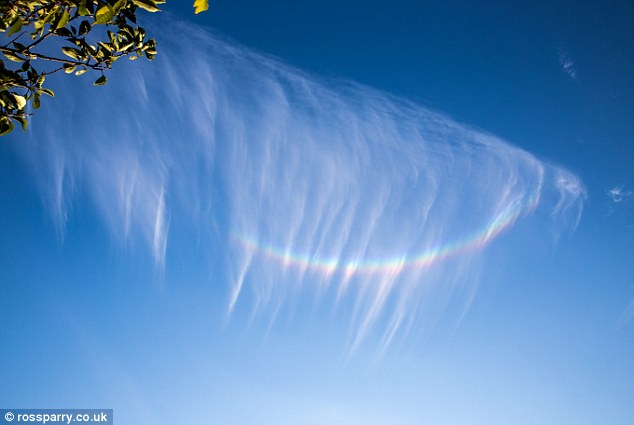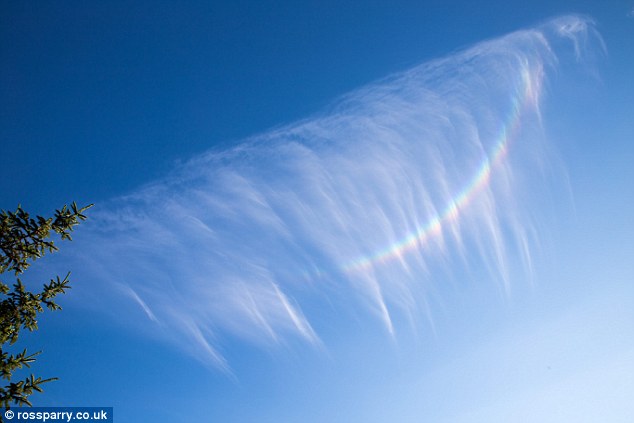An upside-down rainbow is an extremely rare phenomena normally only occuring near the poles.
But this lucky English guy spotted one just over Blackpool, UK. Have you also seen it?
Yes, Ian Brookes, an amateur photographer captured this amazing sky phenomenon in his back garden: A SMILING RAINBOW also known as circumzenithal arc. So cool!

This guy is freaky lucky because such phenomenon actually only occurs near North or South poles.
In comparison to ‘normal’ rainbows, happy rainbows form when sunlight reflects off ice crystals in clouds at high altitude (and not off rain).

Finally, in circumzenithal arcs, colours are in reverse order: From violet on the top to red at the bottom.
Here another example caught on video:
How do these upside-down rainbows form?
- Circumzenithal arcs are the result of freak atmospheric conditions, rarely seen outside the North and South Poles.
- To appear, the clouds must be convex to the sun, with the ice particles lined up together in the right direction, to refract the light.
- The sunlight bounce off the ice crystals, sending the light rays back up and bending the sunlight like a glass prism into a spectrum of colour.
- The arc is generally only seen in the artic circle.
- The ‘rainbow” is much brighter and more concentrated than a rainfall rainbow.
- The arc usually vanishes quickly because the cirrus clouds containing the ice crystals shift their position.
You want more amazing phenomena?












